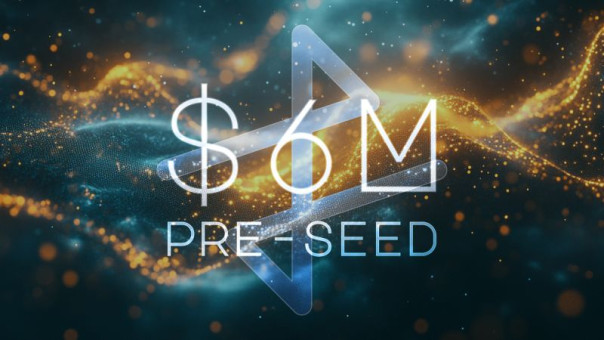Senate Passes Crypto Bill but Joe Biden Could Veto it
Biden's Potential Veto Looms
May 20, 2024 03:59 PM
Reading time: 4 minutes, 12 seconds
TL;DR The US Senate has passed H.J.Res. 109 to overturn SEC's SAB 121, aiming to benefit the crypto industry. However, President Biden's potential veto threatens to halt the bill's progress. Crypto regulation remains a contentious issue with significant political implications.

The US Senate voted in favor of H.J.Res. 109, a bill aiming to repeal Staff Accounting Bulletin No. 121 (SAB 121) issued by the US Securities and Exchange Commission (SEC).
This repeal, if enacted, could have significant implications for the crypto industry, potentially removing certain regulatory barriers and fostering a more favorable environment for crypto businesses.
This development is potentially beneficial for the crypto industry's future growth. However, President Biden's threat to veto the bill is not unexpected, given his administration's recent regulatory stance against the crypto industry.
What Happens If Biden Vetoes?
Should Biden choose not to sign H.J.Res. 109, it will be returned to Congress along with his reasons for disapproval. Congress then can override the veto with a two-thirds majority vote in both the House and the Senate.
If they succeed, the bill becomes law despite the President's disapproval. On the other hand, if Congress fails to secure a two-thirds majority, the veto will stand, and the bill will not become law.
Fox Business journalist Eleanor Terrett noted on X, "I believe Biden now has ten days to either veto, sign, or do nothing. Doing nothing would mean it goes into law just without the signature."
Voter polarization on crypto regulation could influence political polarization, potentially shaping the political landscape and the regulatory environment for the crypto industry. However, it's important to note that crypto does not significantly impact voting behavior, suggesting that other factors may play a more significant role in shaping political decisions.
According to a Pew Research report in April last year, the issue only resonates deeply with some voters, with only 17% of American adults using crypto.
In short, crypto appears to be unpopular now, but it's noteworthy that voters often base their decisions heavily on economic conditions, which are not favorable for Biden.
Economic and Political Implications
According to The Economist, persistent inflation and economic challenges under Biden's administration could sway public opinion against him. The potential repeal of SAB 121 could further complicate his economic and political challenges, potentially impacting his re-election prospects.
Any perceived failures or unpopular decisions in these areas could lead to a loss of support. With critical topics not working in his favor, Biden may want to avoid seeking support from the US crypto community.
Trump's Pro-Crypto Stance
Trump has recently expressed support for the crypto industry, promising to end hostility toward it if elected. His pro-crypto stance, if realized, could significantly impact the regulatory environment for the industry, potentially fostering a more favorable and supportive environment for crypto businesses.
While skeptics might view Trump's shift as a strategic move to garner support, his previous engagement with non-fungible tokens (NFTs) lends some credibility to his promises. However, Biden's potential veto could negate the Senate's decision.
The Senate's Decision
The US Senate has taken a significant step by voting to pass H.J. Res 109, a resolution to overturn the SEC's controversial Staff Accounting Bulletin No. 121 (SAB 121). The Senate's 60-38 vote follows the House of Representatives' approval.
The Senate's decision to pass H.J. Res 109, a resolution to overturn the SEC's controversial Staff Accounting Bulletin No. 121 (SAB 121), reflects bipartisan support against the SEC's crypto policy. SAB 121, introduced in March 2022, requires financial institutions to list customers' digital assets on their balance sheets. Critics argue this mandate creates substantial operational and economic burdens for firms handling cryptocurrencies, leading to the Senate's decision to overturn it.
The Role of Senator Lummis
Senator Cynthia Lummis, a vocal pro-crypto advocate, played a pivotal role in shepherding the resolution's passage. During the hearing, she underscored the risks of SAB 121, highlighting how it could potentially jeopardize customers' assets during bankruptcies.
"SAB 121 puts consumers at risk by requiring a covered institution to place consumers' assets on its balance sheet. It gives creditors a way to claim those assets in bankruptcy. We have seen how this plays out for consumers."
Industry Reactions
The crypto community erupted in celebration following the Senate's decision. Michael Saylor, founder of MicroStrategy and a prominent Bitcoin advocate, expressed his enthusiasm about X.
Despite the resolution's success in Congress, it did not secure enough votes to be veto-proof. President Joe Biden has vowed to veto the resolution.
If he follows through with his threat, the crypto industry could face continued regulatory challenges and uncertainty, potentially hampering its growth and development.
His administration argues that overturning SAB 121 would weaken the SEC's ability to protect investors and the financial system from crypto-related risks. This potential weakening of the SEC's regulatory power could have significant implications for the crypto industry, potentially leading to a more decentralized and less regulated environment.
Future Prospects
Lawmakers like Representative Mike Flood, who sponsored the resolution, continue to urge the President to reconsider. However, Biden's administration has recently intensified its regulatory stance against the crypto industry.
In response, industry leaders are rallying support for pro-crypto political candidates. Coinbase has launched a new political action committee (PAC) named 'Stand With Crypto' to financially back crypto-friendly candidates.
Prominent figures like Mark Cuban and Hayden Adams warned that Biden's current stance could influence upcoming elections.



